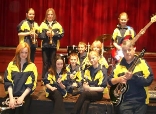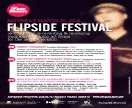题目内容
While I was waiting in line at a coffee shop earlier, a woman drove alongside the queue in a mobility scooter (踏板车). There was only a space between the line of people and the tables, which she to drive along. She drove over my foot and didn't saying nothing at all.
I got annoyed and expected she would have , but then I just decided to it and got down to selecting which pastry (点心) to go with my coffee. The lady and I ended up sitting at adjacent (邻近的) tables. She was on the end of a row so that she could park her After about half an hour, when she had her coffee, she got up and back onto her scooter. It start. She tried to turn the key several times she telephoned the place she purchased it from.
An engineer within 5 minutes. The place must have been local. I couldn't overhearing their conversation, and it turned out she had just the scooter that morning. This was her very first outing in it. She felt really about driving it , she wasn't used to its speed, nor its , and this combination made it quite to drive it through narrow gaps.
Suddenly, I felt for the lady. It really didn't me at all that she'd driven over my foot. I had made an assumption, , that a person doing that should apologize.
Next time you're about to someone, pause for a second and remind yourself that people have judged you without knowing what was going on in your mind or your life.
1.A. private B. vast C. public D. narrow
2.A. attempted B. promised C. declined D. guaranteed
3.A. call back B. give up C. look back D. cheer up
4.A. ignored B. apologized C. explained D. forgiven
5.A. dismissed B. made C. deserved D. inspected
6.A. truck B. bike C. car D. scooter
7.A. poured B. finished C. ordered D. purchased
8.A. needn't B. shouldn't C. wouldn't D. mustn't
9.A. so B. until C. unless D. before
10.A. broke in B. turned up C. ran away D. settled down
11.A. tolerate B. allow C. resist D. postpone
12.A. collected B. stolen C. fixed D. abandoned
13.A. concerned B. excited C. confident D. nervous
14.A. Doubtfully B. Certainly C. Fortunately D. Surprisingly
15.A. width B. length C. weight D. height
16.A. cool B. convenient C. stressful D. desperate
17.A. pleasure B. regret C. appreciation D. sympathy
18.A. strike B. bother C. satisfy D. motivate
19.A. otherwise B. therefore C. however D. besides
20.A. judge B. hug C. persuade D. tease
1.D
2.A
3.C
4.B
5.A
6.D
7.B
8.C
9.D
10.B
11.C
12.A
13.D
14.B
15.A
16.C
17.D
18.B
19.C
20.A
【解析】
试题分析:这篇文章主要讲述了作者在被一个第一次骑踏板车的女性压到脚之后,又目睹了对方骑车的不安和无法启动车子的遭遇后,变得同情对方并原谅了对方的故事。
1.考查形容词辨析。 A. private私有的,私人的; 秘密的;B. vast广阔的; 巨大的; 大量的; 巨额的;C. Public公共的 ;D. narrow狭隘的; 狭窄的。根据句意可知在人群与桌子间只有一个非常狭窄的空间,故选D。
2.考查动词辨析。A. Attempted 试图; 尝试;B. promised允诺,许诺 ;C. declined谢绝,婉拒;下降D. Guaranteed自愿。根据句意可知那个女人试图沿着这条空骑行,故选A。
3.考查短语辨析。A. call back回喊; 叫(某人)回来;B. give up放弃;C. look back回顾; 倒退; 追忆; 回头一看;D. cheer up(使)高兴起来, (使)振作起来; 打起精神。根据句意可知那个女人压到了作者的脚但却没有回头的径直走了,故选C。
4.考查动词辨析。A. Ignored忽视;B. Apologized道歉;C. Explained解释;D. Forgiven原谅。根据句意可知作者当时希望那个女人能向自己道歉,故选B。
5.考查动词辨析。A. dismissed解雇,把…免职; 驳回,拒绝受理; 搁置;B. Made做;C. deserved应受; 应得; 值得;D. inspected检查,检验; 视察。根据句意可知作者最后决定忽视掉这件小事,故选A。
6.考查名词辨析。根据前文可知这个女人骑着踏板车,站在队伍最后方便停车,故选D。
7.考查动词辨析。A. poured涌出;倾,倒;B. Finished完成;C. Ordered下订单;D. Purchased购买。根据句意可知当时这个女人喝完了咖啡就上了踏板车,故选B。
8.考查情态动词辨析。根据句意可知那个女人的踏板车无法启动运行了,故选C。
9.考查连词辨析。根据句意可知在这个女人联系厂家之前尝试着转动了几次钥匙,故选D。
10.考查短语辨析。A. broke in打断; 闯入; 开始工作;B. turned up出现;C. ran away跑开;D. settled down安定下来。根据句意可知一个经理在5分钟之内就出现了,故选B。
11.考查动词辨析。A. Tolerate忍受;B. Allow允许;C. resist 抵制;D. postpone使延期,延缓; 把…放在次要地位; 把…放在后面。根据句意可知作者不可抵制的无意间听见了他们的对话,故选C。
12.考查动词辨析。A. collected收集; 收藏; 接走; 聚积;B. Stolen偷;C. Fixed修理;D. Abandoned抛弃。作者听到这个女人当天早上才买了这个踏板车,故选A。
13.考查形容词辨析。A. concerned担心的,烦恼的;B. excited兴奋的,激动的;C. Confident自信的;D. Nervous不安的,紧张的。根据句意可知这个女人是第一次骑这个车,感到很紧张,故选D。
14.考查副词辨析。根据句意可知这个女人对于要骑这个车感到很不安,故选B。
15.考查名词辨析。A. width宽度; 广度;B. Length长度;C. weight 重量;D. Height高度。根据前文可知这个女人对于这个车的速度和道路的宽度都感到不安,故选A。
16.考查形容词词辨析。根据语境和前文可知速度和狭窄的道路状况让这个女人在骑车过程中倍感压力,故选C。
17.考查名词辨析。A. pleasure愉快; 娱乐; 令人高兴的事;B. regret遗憾,惋惜;C. appreciation欣赏;鉴赏; 感谢; 评估; 增值;D. sympathy意气相投,同感; 同情,同情心。根据句意可知作者此时已经对这个女人感到同情了,故选D。
18.考查动词辨析。A. strike罢(工、课等); 撞; 攻击; 来到;B. bother烦扰,打扰; 使…不安,使…恼怒;C. satisfy 使满意,满足;D. motivate使有动机,促动,激发,诱导。作者此时觉得之前被那个女人压到脚的事已经不再困扰自己了,故选B。
19.考查副词辨析。根据前后文可以判断作者做了一个决断,就是这个女人做的事完全可以被原谅,故选C。
20.
考点:考查记叙文阅读






